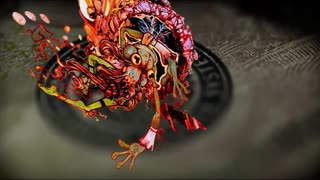Premium Only Content

It's Only Rock And Roll Unexpected Selections Of The Rolling Stones
It's Only Rock and Roll unexpected selections of The Rolling Stones
It's Only Rock 'n Roll is the 12th British and 14th American studio album by the English band the Rolling Stones, released on 18 October 1974 by Rolling Stones Records. It was the last Rolling Stones album to feature guitarist Mick Taylor; the songwriting and recording of the album's title track had a connection to Taylor's eventual replacement, Ronnie Wood. It's Only Rock 'n Roll combines the core blues and rock 'n' roll–oriented sound with elements of funk and reggae. It's Only Rock 'n Roll reached number one in the United States and number two in the UK.
It's Only Rock 'n Roll was Mick Taylor's last album with the Rolling Stones. Similar to receiving no writing credits on the Stones' previous album, Goats Head Soup, Taylor reportedly had made songwriting contributions to "Till the Next Goodbye" and "Time Waits for No One", but on the album jacket, all original songs were credited to Jagger/Richards. Taylor said in 1997:
"I did have a falling out with Mick Jagger over some songs I felt I should have been credited with co-writing on It's Only Rock 'n Roll. We were quite close friends and co-operated quite closely on getting that album made. By that time Mick and Keith weren't really working together as a team so I'd spend a lot of time in the studio."
Taylor's statement contradicts Jagger's earlier comment concerning the album. Jagger stated in a 1995 Rolling Stone interview about "Time Waits for No One" that Taylor "maybe threw in a couple of chords".
Alongside the usual outside contributors, namely Billy Preston, Nicky Hopkins and unofficial member Ian Stewart, Elton John sideman Ray Cooper acted as percussionist for the album. Several songs were finished songs and overdubs and mixing were performed at Jagger's home, Stargroves, in the early summer of 1974.
Luxury
Keith Richards got the idea for this from a song that came on the radio while he was driving in Munich.
Ray Cooper played percussion on this track. A British session musician, he played on most of Elton John's albums in the '70s, and has also recorded with Paul McCartney, Eric Clapton, and Roger Waters.
Fingerprint File
The Rolling Stones used a funk sound on this that would emerge on their next album, Black And Blue. Unlike most of their songs, they did some improvisation on this one. Keith Richards explained in a 1975 interview with Sounds: "The middle and end part was totally off-the-cuff. It could have been a much tighter three-minute thing with just the vocal and riff but it got extended."
This was the last song Mick Taylor played on as a Stone. He was replaced by Ron Wood on the next album.
Mich Jagger played guitar on this track, which was something he rarely did. He also played the guitar when they performed it live.
On Keno's Rolling Stones website, this was voted the song by The Rolling Stones which was ahead of its time when released, for two main reasons: "It's rap like before there was rap, and was written years before the George W. Bush administration would do just about everything noted in the song."
Short and Curlies
“Short and Curlies” was recorded in Jamaica during the Goats Head Soup
sessions. This blues-rock number with a strong boogie-woogie accent was
reworked in Munich and then at Mick Jagger’s house, Stargroves, before
being finalized at Island Studios in London. The very good piano intro is
played by Ian Stewart, who only played on tracks he liked, leaving Nicky
Hopkins or Billy Preston the trouble of recording the ones that did not
interest him. “Stu always did what he wanted to do,” confirms Keith.
Having set up a boogie-woogie, indeed almost Dixieland, vibe, the pianist
is joined almost immediately by Mick Taylor with a brilliant and very
clear-toned slide guitar part, probably played on a Telecaster. Keith handles the
rhythm guitar, on which he provides unwavering support, apparently
leaving Mick Taylor to play lead, now with distortion. Charlie Watts
accompanies his bandmates with some excellent drumming, accentuating
the shuffle rhythm with the help of Bill Wyman, the two of them very much
at ease on this kind of track. As is Mick Jagger, whose performance again
lives up to his reputation. He doubles himself in the vocal harmonies and is
accompanied presumably by Keith. “Short and Curlies” is a good song that
resembles the melody of “Midnight Rambler” (Let It Bleed, 1969) in places.
It is a shame the Stones do not return to their roots more often.
-
 11:55
11:55
Psychological operations
5 days agoJust Because Mountain Song Irresistible Force Jane's Addiction
461 -
 LIVE
LIVE
Sm0k3m
8 hours agoPlaying games on Rumble
181 watching -
 10:37
10:37
Russell Brand
2 days agoHow is this even allowed?
141K787 -
 1:37:26
1:37:26
Real Coffee With Scott Adams
4 hours agoEpisode 2701 CWSA 12/26/24
74.8K72 -
 2:58:58
2:58:58
Wendy Bell Radio
9 hours ago9 Steps Ahead
107K125 -
 2:03:46
2:03:46
LFA TV
18 hours agoTIME FOR A NEW SPEAKER! | LIVE FROM AMERICA 12.26.24 11am EST
58.9K35 -
 1:40:22
1:40:22
Game On!
15 hours ago $5.03 earnedNFL Thursday Night Football Seahawks at Bears EXPERT Picks!
45.1K9 -
 1:50:54
1:50:54
xBuRnTx
4 hours agoWho's Ready for New Years!
33.5K1 -
 12:09
12:09
Tactical Advisor
17 hours agoSmith & Wesson Shield Plus Carry Comp
27.3K2 -
 4:35:25
4:35:25
Father Russell
10 hours agoDelta Force | Not A Woman? | Mad Martigan Time
67.5K5